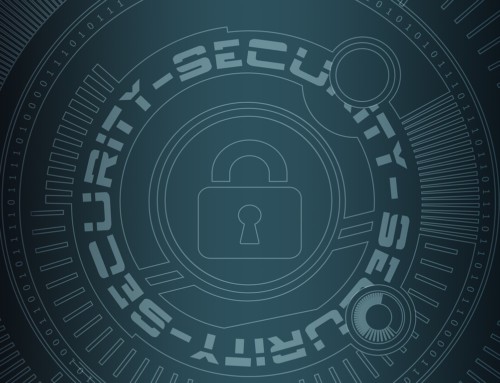In this day and age, data protection is extremely important. Nearly everyone on the internet is providing their personal information somewhere.
Your address, telephone number, name, bank account numbers, credit card numbers, and even photos of you can be used to steal your identity. There are some scammers that are even using peoples’ voices. This is the “Can You Hear Me Now” scam. If the scammer has identifying information and a recording of your voice saying the word “yes,” your identity could be stolen.
Protecting Data Protects Identity
In 2014, CNN Money said that half of American adults had been hacked in some way that year. However, the exact number of those hacked were never clear because eBay and AOL aren’t very transparent about cyber breaches. That year saw the Target breach that resulted in 40 million people having their credit and debit card information stolen.
Other hacks included Adobe credentials stolen from 33 million users. The account data of 4.6 million Snapchat users were also exposed. The eBay breach possibly affected 148 million customers.
2014 was a major year for security breaches, but it didn’t stop there. As companies have worked to secure their systems, hackers have gotten smarter. If encryption doesn’t protect the data, a hacker can find a backdoor and use it to gain access to personal and financial information.
After the 2017 Equifax breach, some individuals are reporting transactions on some of their credit accounts. It is possible that you know someone who has had an unauthorized charge on a credit card or credit inquiries that they didn’t initiate.
Some Frightening Statistics
So, how do you know that your information is secure? It really can be difficult. According to Forbes, nearly 30,000 websites every day are infected with some kind of malware.
Here is where the statistics get frightening:
- As of 2016, nearly 90 percent of businesses were victim to some kind of computer hack.
- According to the 2017 Identity Fraud Study, 15.4 million Americans were victims of identity theft in 2016.
- There are more than 4,000 cyberattacks daily, which translates to three every minute, according to IBM.
- A study conducted by the UN revealed that up to 17 percent of the global online population is affected by digital theft. This is compared to the offline crime rate of less than 5 percent. It is estimated that approximately 80 percent of cybercrimes aren’t reported due to not being aware of the crime or simply not knowing how to report it.
You probably want to shut off your device right now, but it’s important to understand why cybercrimes are so prevalent.
The Issue
Cybercrime is actually very hard to fight on a global level. This is because a very high percentage of these crimes cross national borders. This can make solving a cybercrime very problematic.
First, domestic authorities must have the cooperation of international authorities. The UN reported that 70 percent of cybercrimes are international and that one-third to one-half of countries don’t have the legal framework to make international cyber offenses criminal. That makes it very difficult for domestic law enforcement to hold the criminals responsible.
There is also the fact that many people might not realize that the identity theft that has occurred was the result of a cybercrime. With so many phone scams, skimmers on ATM machines, mail theft, and eavesdropping incidents, a person may not be able to isolate when the theft occurred.
The Basic Solution
There are several things that you can do to protect personal and business information. Some basic things are:
- Never fall for the scam where someone asks to send you a check so you can send cash back. Many people have lost thousands of dollars due to this scam.
- Never click a link in an email from someone you don’t know.
- If a person shouldn’t be sending you a link to anything, don’t click it. Call or send a Facebook message to ask if the email is legitimate.
- If an email is ever suspicious, even if it’s from someone you know, always check with that person first.
- Never do a financial transaction on a website with a URL that doesn’t begin with “https.” The “s” indicates it’s a secure connection.
- Legitimate companies never ask you for your password in an email, so don’t provide it.
- Never log into an account from an email link. Always manually type it into your browser so you know you are getting the real site and not a phishing site.
- Always have your virus scan on. Turn on the function that monitors the websites you visit. If a website has a security issue, the virus software will notify you so you can leave the site.
These are just some basic things you can do to protect yourself. You may even want to consider using temporary debit and credit card numbers, as some companies are now offering this feature for online transactions. You may also want to try using a prepaid card to make online purchases so hackers wouldn’t have access to credit card or bank accounts.
The Secure Solution
The most secure solution is to use encryption everywhere possible. According to IT Business Edge, half of employees take their confidential corporate data with them when they leave a company. People are also always using computers and devices on unsecured connections. Using an encrypted web browser, like Comodo Dragon or Tor, can provide better protection.
You can also use a virtual private network, which masks your IP address. A VPN doesn’t cost much. For instance, Avast has the option to use a VPN for just a few dollars a month.
Secure Swiss Data is another option to help you protect your information. When communicating over email, it is best for you to encrypt the communication so an unauthorized party can’t intercept it. This is a great choice for individuals and businesses in the mission to keep sensitive information away from hackers. Combined with personal diligence, you can build an effective wall between your personal information and those that want to steal it for their own gain.







Leave A Comment